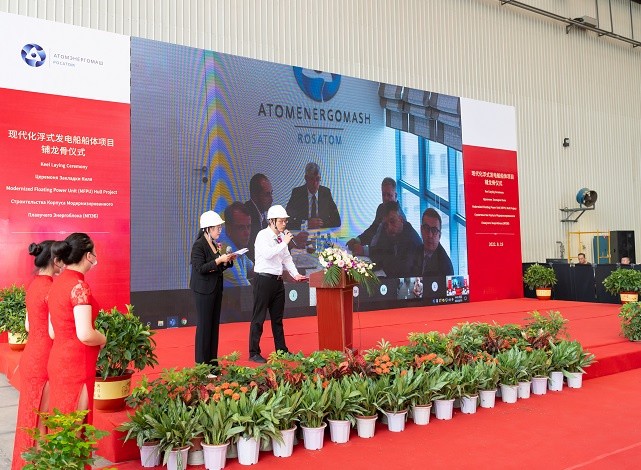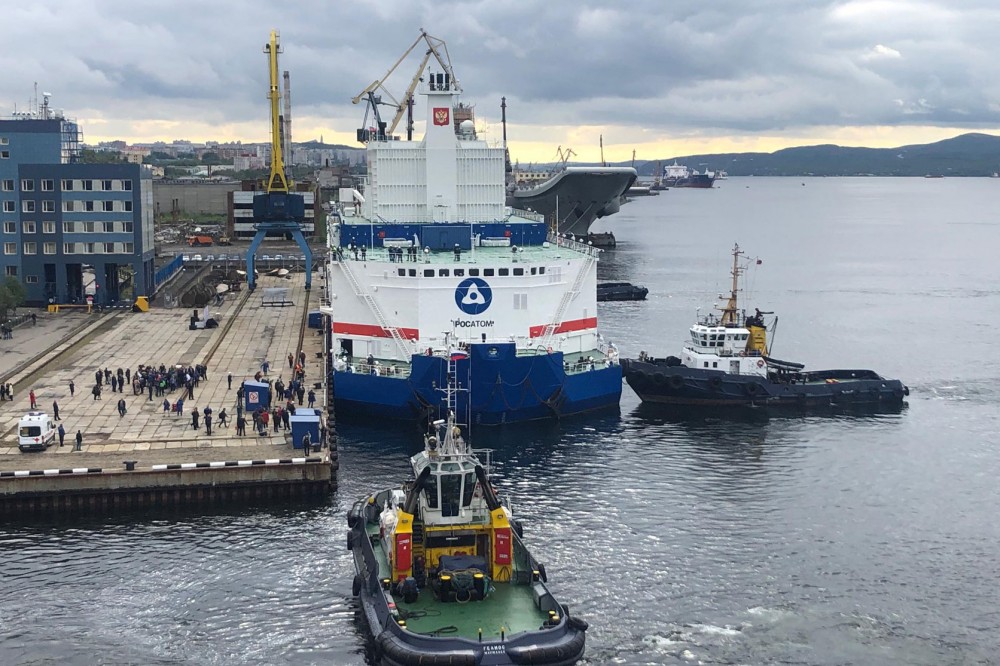Construction of second Arctic floating nuclear power plant is underway
The first of four in a new generation of upscaled floating nuclear power plants for the Arctic is now officially under construction at a yard in China.

Three years after the Akademik Lomonosov started to produce electricity for the remote Siberian community of Pevek, the first of four new Arctic floating nuclear power plants is now being built in a Chinese shipyard.
Unlike the hull of the Akademik Lomonosov, which was built in Severodvinsk by the White Sea before being towed to St. Petersburg where reactors and other gear were built, the hulls to the first two new floating plants will be built in China.
Atomenergomash, a sub-company of Russia’s Rosatom state nuclear corporation, took part in the keel-laying ceremony via videoconference from Moscow with the yard in Nantong in the southeastern Jiangsu province.
The barge will be 140 meters long and 30 meters wide and will have a weight of nearly 10,000 tons, according to Atomenergomash.
By the end of 2023, the barge will be towed to Russia where installation of the reactors, auxiliary equipment, control room and accommodation area will take place.
The company doesn’t say which shipyard in Russia — the Baltiskiy Yard in St. Petersburg or the Zvezda Yard in Bolshoy Kamen in the far east — will do the job. Severodvinsk in the northwest is likely occupied with building military nuclear submarines.
By the end of 2022, a decision will be made on where to build the hulls for the third and fourth floating plants.
The contract to supply four floating nuclear power plants to Chukotka Autonomous Okrug was signed with Rosatom last year, as previously reported by the Barents Observer.
Each of the plants will have an installed electric capacity of 106 MW.

While the Akademik Lomonosov has two KLT-40 reactors similar to those powering the former Arktika class of nuclear-powered icebreakers, the new generation now being built will get an upgraded version of the RITM-200 reactors producing more steam to the generators.
RITM-200 is the reactor type being used onboard the new icebreakers of Project 22220, including Arktika and Sibir — which are already sailing northern waters — as well as three more currently are under construction in St. Petersburg.
Russia hopes the floating nuclear power plants in the Arctic will trigger interest from other countries.
This new family of floating plants can have different power and purposes for the Arctic or the tropics, said Andrey Nikipelov, Atomenergomash’s director.
“Atomenergomash is ready to offer it to the market,” he said, emphasizing that the floating plants have a “serious potential for exports.”